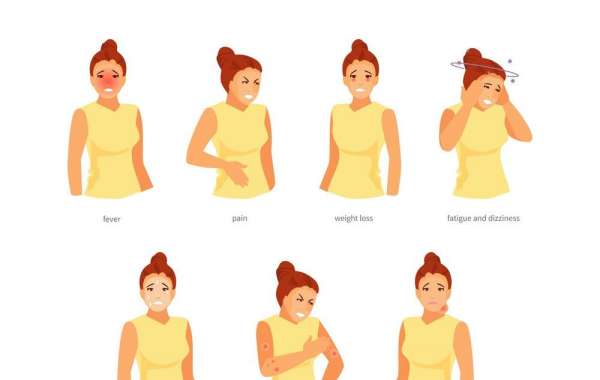Cancer is a formidable adversary that affects millions of lives worldwide each year. While the word itself can evoke fear and uncertainty, early detection remains one of the most potent weapons in the fight against this disease. Recognizing the signs and symptoms of cancer can be crucial for timely diagnosis and effective treatment. In this blog, we'll delve into the ten warning signs of cancer that should never be ignored.
Unexplained Weight Loss: Unexpected weight loss, especially without changes in diet or physical activity, can be a red flag for various types of cancer. Rapid and unexplained weight loss, typically defined as losing 10 pounds or more without trying, may indicate underlying health issues and requires medical evaluation.
Persistent Fatigue: While fatigue is a common complaint in our fast-paced lives, persistent and unexplained fatigue that doesn't improve with rest might be a symptom of cancer. Leukemia, colon, or stomach cancer are among the types of cancer that can cause profound and lingering fatigue.
Persistent Pain: Chronic pain that persists despite conventional treatment methods warrants investigation. While pain can be attributed to various factors, including injury or inflammation, persistent pain in any part of the body should prompt further evaluation, as it could be indicative of cancer.
Changes in Bowel or Bladder Habits: Changes in bowel habits, such as persistent constipation or diarrhea, as well as blood in the stool or urine, should not be overlooked. These symptoms could signal colorectal, bladder, or prostate cancer and require prompt medical attention.
Unusual Bleeding or Discharge: Unexplained bleeding or discharge from any part of the body should raise concern. This includes bleeding between menstrual periods, blood in the urine or stool, or any abnormal discharge. These symptoms could be indicative of various cancers, including cervical, colorectal, or ovarian cancer.
Persistent Cough or Hoarseness: While coughs are often attributed to respiratory infections, a persistent cough or hoarseness that lingers for weeks or months should be evaluated, as it could be a symptom of lung, throat, or thyroid cancer.
Difficulty Swallowing: Difficulty swallowing, also known as dysphagia, can be a symptom of esophageal or throat cancer. If you experience persistent difficulty swallowing or the sensation of food getting stuck in your throat, it's essential to seek medical attention.
Changes in Moles or Skin Lesions: Skin changes should be carefully monitored, as they could be indicative of skin cancer. New moles, changes in the size, shape, or color of existing moles, or the development of sores that don't heal should prompt a visit to a dermatologist.
Persistent Indigestion or Difficulty Eating: Persistent indigestion, heartburn, or discomfort after eating could be signs of esophageal, stomach, or throat cancer. If you experience ongoing digestive issues that don't improve with dietary changes or over-the-counter medications, consult a healthcare professional.
Changes in Lumps or Swellings: Any changes in the size, shape, or texture of lumps or swellings in the body should be evaluated by a medical professional. While lumps are often benign, they can also be a sign of cancerous growths, and early detection is crucial for effective treatment.
Conclusion:
Recognizing the warning signs of cancer and seeking prompt medical attention can make a significant difference in the outcome of the disease. While these symptoms can be indicative of various health conditions, it's essential not to ignore persistent or unexplained changes in your body. Regular health screenings and maintaining open communication with your healthcare provider can aid in early detection and improve treatment outcomes. Remember, your health is priceless—don't hesitate to prioritize it.




